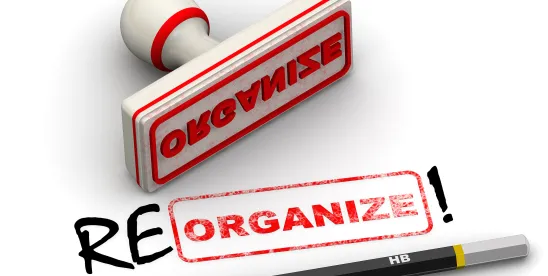For creditors, it can be difficult to navigate the financial difficulties of your customers.
It seems like it would only get worse in bankruptcy, but that is not always the case. Subchapter V of Chapter 11 of the Bankruptcy Code has become the "bankruptcy of choice" for small business debtors who qualify for its protections because it creates a more streamlined and less expensive Chapter 11 reorganization path. It's a less arduous path for debtors and creditors alike, even if it requires the intercession of the bankruptcy court, and the journey can last for years.
But creditors need to know its pitfalls, one of which is that it abolishes the "absolute priority" rule. In a traditional Chapter 11 reorganization, the debtor proposes a plan of reorganization. If creditors object, the court must conclude the plan is fair and equitable and complies with priority rules that establish a hierarchy of creditor classes for the order in which each class will be paid. Higher-priority creditors are paid in full before payment to lower-priority creditors. Equity owners can't retain estate property for themselves unless they pay all creditors in full.
In Subchapter V, the absolute priority rule is not in play. To confirm a plan, the bankruptcy court must find it "fair and equitable" and feasible – the debtor can make the payments under the plan. The plan must commit all the debtor's projected disposable income for payments to creditors for three to five years. The plan must also have appropriate remedies should the debtor default under the plan. The owners of a Subchapter V debtor can retain their equity over creditors' objections.
The big fight in a Subchapter V case often is over projected disposable income – the money left over after expenditures necessary for the continuation, preservation, or operation of the debtor's business. Projected disposable income may be a fixed amount, or it may fluctuate over the plan term. The debtor's financial projections have to pass muster with the court, and creditors should review and scrutinize the numbers. What happens if the debtor confirms a plan that under-sells its future income and then over-delivers?
At least one bankruptcy court in Florida has held that creditors were entitled to a "true up" in a Subchapter V plan so that if income exceeded the projected disposable amount, the windfall would inure to the creditors. In the Florida case, the court required the debtor to calculate disposable income every quarter and to file quarterly operating reports showing actual disposable income.
This is not a universal position. Recently, a Texas bankruptcy court refused to include a "true up" provision in a Subchapter V case. The Texas court held there may be circumstances where it would be unfair to creditors not to adjust a plan when the debtor's actual income beat projected income. But the court held that it could not impose a true-up requirement on the debtor before it.
To the author's knowledge, North Carolina bankruptcy courts have not addressed this issue. Creditors are encouraged in their negotiations with Subchapter V debtors to press for true ups and periodic reporting to recover more on their claims over the life of the plan. If the debtor can retain its equity and obtain a discharge upon plan satisfaction, it is not unreasonable for creditors to demand they receive all available income to reduce their losses.




 />i
/>i

